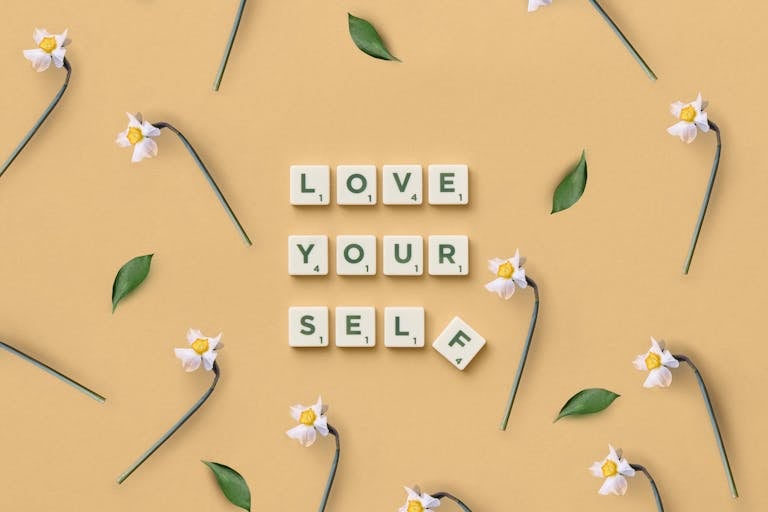A Step-by-Step Guide to Achieving Your Self-Development Goals in 2025
Do you ever feel like you have big dreams but struggle to turn them into reality? Self-development is the key to unlocking your full potential and achieving your goals. Whether you want to improve your confidence, develop new skills, or build better habits, having a structured plan can make all the difference.
In this guide, we’ll walk you through a step-by-step approach to setting and achieving your self-development goals. By following these steps, you’ll gain clarity, motivation, and a roadmap to success.
Understanding Self-Development
Self-development is a lifelong process that involves the deliberate pursuit of personal growth and self-improvement. At its core, it encompasses various dimensions of human experience, including emotional, intellectual, and physical growth.
The holistic approach to self-development allows individuals to not only enhance their skills and knowledge but also to cultivate a deeper understanding of themselves and their goals. This process is essential for achieving your self-development goals, as it prepares one to face both personal challenges and career aspirations more effectively.

Emotional growth refers to the enhancement of one’s emotional intelligence, which includes the ability to recognize, understand, and manage emotions. Developing emotional resilience can lead to improved interpersonal relationships and a better capacity for coping with stress and adversity.
Lets see what’s intellectual growth involves
On the other hand, intellectual growth involves the acquisition of new knowledge and skills through learning experiences. This can take various forms, including formal education, reading, and engaging in constructive dialogue with others. By continuously seeking to expand one’s intellectual capabilities, individuals lay a strong foundation for achieving their self-development goals.
Physical growth is another vital aspect of self-development. Maintaining physical health through proper nutrition, exercise, and wellness practices not only contributes to overall well-being but also enhances mental clarity and focus.
These three areas of growth, emotional, intellectual, and physical interact and influence each other, creating a synergistic effect that propels individuals toward their objectives. Understanding and nurturing these dimensions of self-development can provide a comprehensive roadmap for personal growth. By focusing on these interconnected areas, individuals can create tailored plans that align with their aspirations, ultimately leading to the achievement of their self-development goals.
Identifying Your Goals
Setting clear and achievable self-development goals is a critical first step in the journey of personal growth. Goals act as a roadmap, providing direction and purpose. To effectively identify personal aspirations, it is essential to engage in a reflective process that considers both short-term and long-term objectives. This self-reflection allows individuals to evaluate what is genuinely important to them, fostering a deeper understanding of their desires and motivations.
Begin by taking time to contemplate what areas of your life you wish to enhance. Consider dimensions such as career, relationships, health, or education. Writing down potential goals can clarify thoughts and feelings, making them more tangible. Once you have a list, it is beneficial to categorize these objectives based on their timeframes. Short-term goals may involve skill acquisition or small lifestyle adjustments, while long-term goals could encompass aspirations like career advancements or significant lifestyle changes.
Align Your Self-Development Goals
Moreover, aligning your self-development goals with your core values and passions is crucial for sustained motivation. This alignment ensures that your pursuits resonate deeply with who you are, increasing the likelihood of achieving your self-development goals. Take time to evaluate each goal through the lens of your values: Does this goal reflect what you truly value in life? Will pursuing this goal bring fulfillment? Such questions can provide a solid foundation upon which to build your objectives.
In this process, it is also helpful to remain flexible. Life circumstances can shift, and goals may require adjustment. Stay open to refining your goals based on changing priorities or new insights gained along your journey. Recognizing that self-development is an evolving process can encourage resilience and commitment in achieving your self-development goals.
Creating a SMART Goals Framework
Setting effective self-development goals requires a structured approach, and the SMART criteria provide an excellent framework for doing so. The acronym SMART stands for Specific, Measurable, Achievable, Relevant, and Time-bound. By applying these principles, individuals can ensure that their goals are clearly defined and actionable, which increases the likelihood of successful outcomes.
To begin, specificity is key. A self-development goal should clearly articulate what you want to achieve. Instead of saying, “I want to be better at my job,” a SMART goal would state, “I want to improve my presentation skills by attending a workshop.” This clarity removes ambiguity and keeps the focus on your target.

Track Your Progress
The next criterion, measurability, involves defining how you will track progress. A measurable goal allows you to assess whether you are moving forward. For instance, if your goal is to read more self-help books, specify a number: “I will read one self-help book each month.” This quantifiable aspect provides a tangible benchmark for your progress.
Achievability comes next. While it’s important to challenge yourself, your goals should remain realistic. Setting an attainable goal, such as “I will practice my public speaking for one hour each week,” encourages consistent effort without overwhelming you. This balance is essential for sustaining motivation and building confidence.
Relevance ensures that your goals align with your broader life objectives. Assess how the goal contributes to your personal growth. For example, if you aspire to advance in your career, improving your negotiation skills would be pertinent. Finally, establish a time frame. A time-bound goal could state, “I will complete my online negotiation skills course by the end of the next quarter.”
By incorporating these elements, Specific, Measurable, Achievable, Relevant, and Time-bound—when setting self-development goals, you create a robust foundation for achieving your aspirations. This framework not only clarifies your objectives, but also establishes a strategic pathway to success.
Developing an Action Plan
Creating an effective action plan is a fundamental step towards achieving your self-development goals. A well-structured plan not only helps in tracking your progress but also provides a clear roadmap to follow. The first step in this process is to break down your main goals into smaller, manageable tasks. By doing so, you make the objectives less overwhelming and more approachable. For instance, if your goal is to improve communication skills, you might break this down into tasks like enrolling in a public speaking course, practicing with friends, or reading books on effective communication.
Once you have delineated your tasks, the next step is to establish deadlines for each of these tasks. Setting deadlines instills a sense of urgency and accountability. Timelines should be realistic to ensure that you remain motivated and on track. Use tools such as calendars or project management apps to visualize your timeline and stay organized. This visual representation not only helps in maintaining focus but also allows you to easily adjust your plan as needed.
Another crucial aspect of your action plan is identifying the resources and support systems necessary to achieve your self-development goals. Consider both the material resources, such as books and courses, and the human resources, like mentors, friends, or support groups, that can assist you. Engaging with a community can provide valuable encouragement and insights. Furthermore, anticipate potential obstacles you might encounter along the way. By recognizing these challenges upfront, you’ll be better prepared with strategies to overcome them, ensuring that your journey toward achieving your self-development goals remains uninterrupted.
Establishing a Routine and Commitment
Establishing a consistent routine plays a pivotal role in achieving your self development goals. Routines not only provide structure but also cultivate discipline, ultimately enhancing one’s capacity to engage in regular self-development activities. The first step in creating an effective routine is to identify specific times during the day or week dedicated solely to personal growth. By allocating time blocks for activities such as reading, meditation, or skill practice, individuals can ensure that self-development remains a priority amidst other commitments.
One effective strategy for maintaining your routine is to begin small. Setting achievable milestones can help reinforce positive behaviors without overwhelming oneself. For instance, instead of committing to an hour of reading daily, start with 15 minutes and gradually increase this duration as it becomes a more embedded part of your daily activities. This incremental approach aids in forming sustainable habits, ultimately propelling you toward your self-development goals.
Utilizing tools such as journals
Moreover, tracking progress can significantly enhance motivation. Utilizing tools such as journals or apps allows individuals to monitor their progress and celebrate small successes along the way. This practice not only reinforces a sense of accomplishment but also provides valuable insights into the effectiveness of one’s routine. It’s essential to remain flexible and open to adjustments. Life can be unpredictable, and adapting your routine in response to changes can help maintain momentum in achieving your self-development goals.
Incorporating variability in practices can also prevent monotony. Engaging in different activities or learning new skills within the framework of your routine can sustain interest and excitement about personal growth endeavors. Ultimately, dedication to a thoughtfully constructed routine, coupled with commitment and flexibility, lays the groundwork for the successful attainment of self-development goals.
Tracking Progress and Celebrating Milestones
Monitoring progress is essential in the pursuit of self-development goals. By establishing metrics for success, individuals can gain insight into their journey and adapt their strategies as needed. Tools for tracking achievements can vary widely, depending on personal preferences and the nature of the goals.
Many find success with digital applications designed for goal tracking, such as productivity apps that allow users to set reminders, record achievements, and visualize their progress over time. Likewise, traditional methods such as journals or planners remain effective for those who prefer tactile engagement with their tasks.
The psychological benefits associated with tracking progress and celebrating milestones should not be overlooked. Research indicates that recognizing and celebrating small victories can foster motivation, increase self-esteem, and promote a positive mindset.

Each accomplishment, however small, reinforces the belief that one is capable of meeting self-development goals. This positive reinforcement is vital as it helps maintain momentum and contributes to a more enjoyable and fulfilling experience throughout the self-improvement journey.
Furthermore, reflecting on one’s progress can provide valuable insights that will inform future actions. By assessing what worked and what didn’t, individuals can make necessary adjustments to their goals and strategies.
This reflective practice promotes a growth mindset, allowing for greater flexibility and resilience in the face of challenges. It can also help prevent burnout by ensuring that the pursuit of self-development goals remains aligned with one’s values and interests.
By integrating consistent tracking methods and celebrating milestones, individuals are more likely to stay committed to their self-development journey. These practices not only enhance motivation but also empower individuals to make informed decisions about their paths forward. As a result, the process of achieving self-development goals becomes a dynamic and engaging journey that fosters personal growth.
Overcoming Challenges and Obstacles
The journey toward achieving your self-development goals is often fraught with challenges and obstacles. Many individuals encounter issues such as procrastination, fear of failure, and a gradual loss of motivation. Understanding these barriers is crucial for maintaining a positive mindset and successfully navigating the path of personal growth.
Procrastination is one of the most common hurdles one may face in the pursuit of self-development. It can stem from overwhelming feelings associated with the tasks at hand or an inability to prioritize. To combat procrastination, it is essential to set clear and manageable goals and break larger tasks into smaller, achievable steps. Moreover, creating a structured schedule and establishing deadlines can foster a sense of accountability, making it easier to stay on track.
Fear of failure is another significant obstacle that can hinder progress. Many individuals fear that their efforts will not yield the desired results, leading to a reluctance to pursue self-development goals altogether.
To overcome this fear, it is vital to reframe the concept of failure as an opportunity for learning and growth. Embracing a growth mindset allows individuals to view setbacks as valuable experiences that contribute to overall development, rather than as insurmountable defeats.
Various factors that Needs to be considered
Lastly, a loss of motivation is a natural part of the self-development journey. Various factors, including external pressures and internal doubts, can contribute to waning enthusiasm. To maintain motivation, it is beneficial to regularly revisit personal motivations and aspirations, connecting daily actions to the larger purpose. Establishing a support network of like-minded individuals can also provide encouragement and inspiration to stay committed to achieving your self-development goals.
Recognizing and addressing these common challenges is paramount for anyone looking to navigate their self-development journey effectively. By implementing practical strategies to overcome obstacles, individuals can foster resilience and stay focused on their growth objectives.
Seeking Support and Resources
Achieving your self development goals can often feel like a solitary journey; however, seeking support and resources can significantly enhance your personal growth process. Connecting with peers, mentors, and professionals not only provides motivation but also offers invaluable insights and encouragement that can help you navigate challenges along the way.
It is essential to recognize that you are not alone in your quest for self-improvement, and seeking help can create a powerful support system to encourage your progress.
One of the most effective ways to find support is through mentoring. A mentor can be an experienced individual in your field who can offer guidance, share experiences, and help you identify potential pitfalls as you work towards your self development goals. Engaging in conversations with your mentor can shed light on strategies that have worked for them and can inspire confidence in your capabilities.
Utilizing resources
In addition to mentors, utilizing resources such as books, workshops, online courses, and community support groups can help fortify your self-development journey. Books offer a wealth of knowledge that can deepen your understanding of topics related to self-improvement, while workshops and online courses provide structured learning opportunities.
These platforms often introduce you to new methodologies and viewpoints, broadening your perspective on personal growth.
Community support groups are another valuable resource. They foster an environment of mutual encouragement and accountability among individuals pursuing similar self development goals. Sharing your experiences and challenges with others can lead to collective brainstorming, allowing you to benefit from diverse strategies and solutions that you may not have considered on your own.
By leveraging these supportive avenues, you can enhance your capability to achieve your self development goals and maintain a focused and motivated mindset. With the right resources and a solid support system, you can transform your aspirations into successful outcomes.
Reflecting and Reassessing Goals
As individuals embark on their self-development journey, the importance of reflection and reassessment cannot be overstated. Achieving your self-development goals requires a continuous process of evaluating one’s progress and experiences.
Regularly taking time to reflect allows individuals to recognize what techniques and strategies have been effective, as well as those that may need adjustment. This process fosters a deeper understanding of personal capabilities and challenges faced along the journey.

During reflection, it proves beneficial to delve into specific questions. What have you accomplished so far? Which goals have been met, and which remain outstanding? Evaluating progress against predetermined self-development goals can provide clarity on whether these objectives are still relevant.
This reflective practice aids in determining if adjustments are necessary to align with an individual’s evolving personal growth trajectory. Experiences often yield invaluable lessons that contribute to a more nuanced understanding of oneself.
Reassessing goals should not be perceived as a setback. Instead, adjusting goals or setting new ones in light of changed aspirations signifies proactive growth. As individuals experience different life events, their motivations and desires may shift, necessitating a reconsideration of prior goals. Embracing this dynamic nature of personal development is essential in ensuring that one’s aspirations remain both relevant and achievable.
Conclusion
Ultimately, the process of reflecting and reassessing self-development goals is integral to thriving in the pursuit of personal growth. Engaging in this ongoing evaluation builds resilience and adaptability, ensuring that individuals remain on a path that resonates with their current values and ambitions. By acknowledging the need for regular reflection and adjustments, one can maintain momentum in their self-improvement journey and maximize the potential for success.







